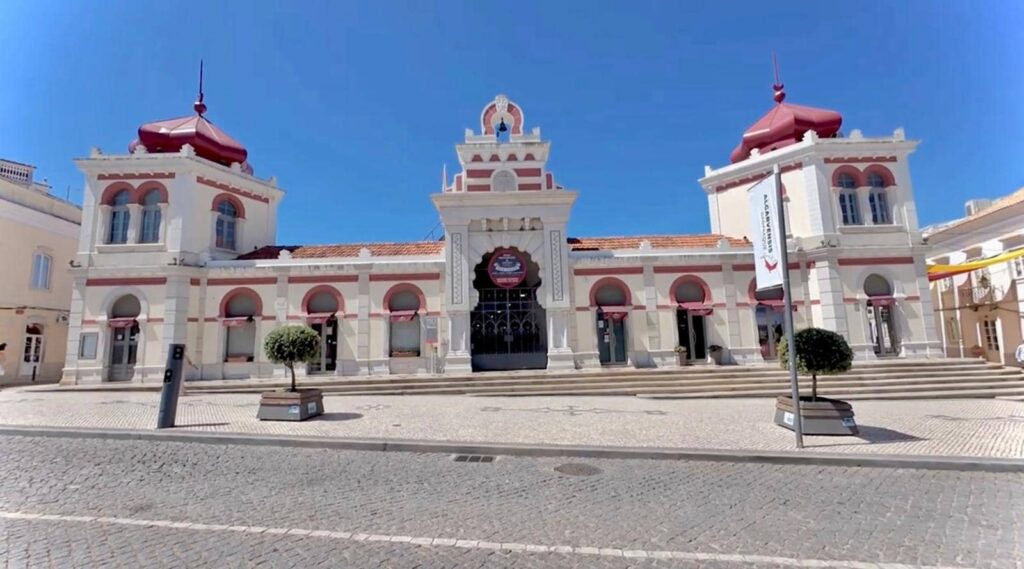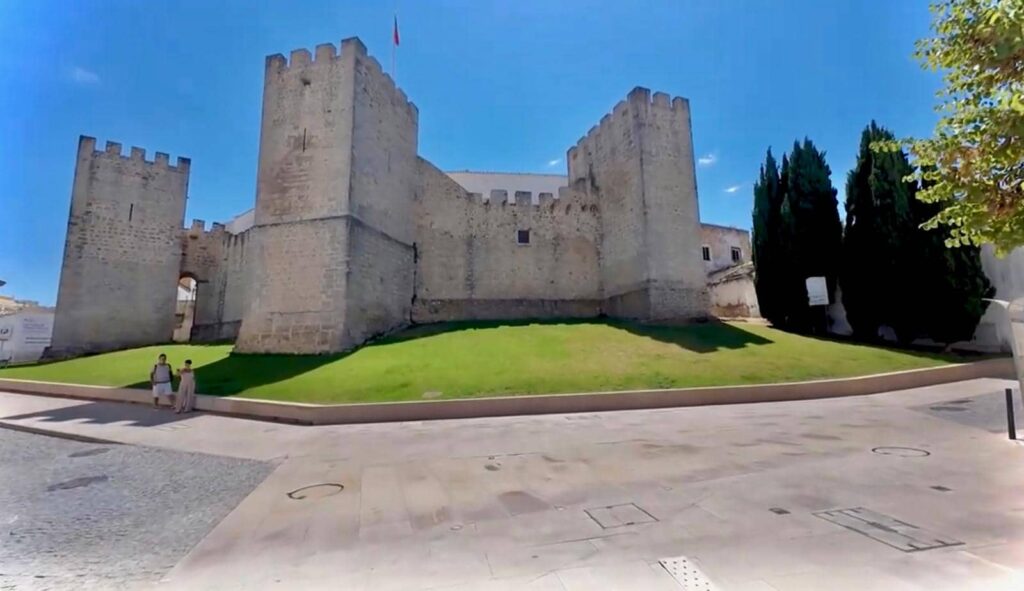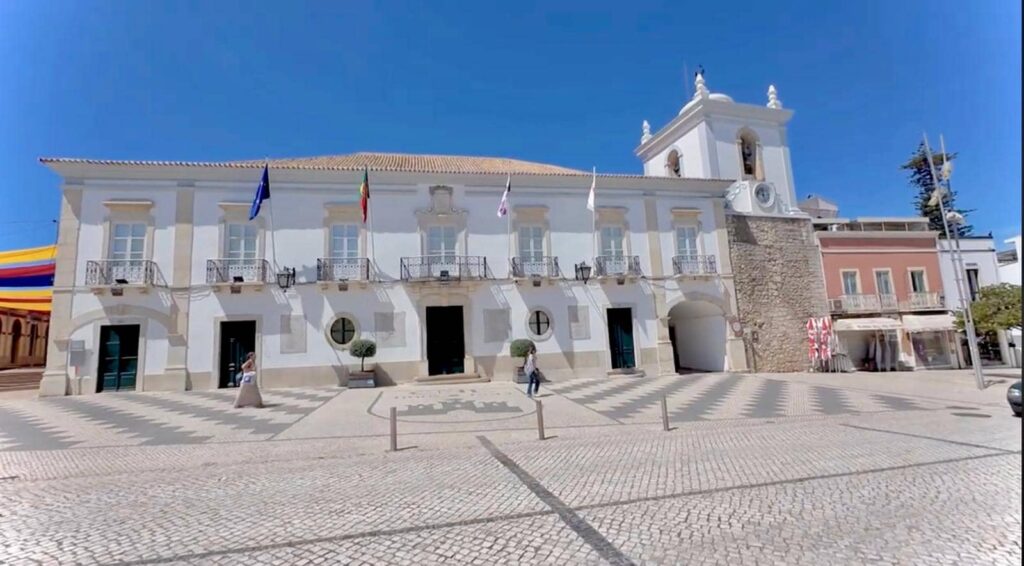Loulé is a charming city known for its deep-rooted traditions, whitewashed architecture, bustling markets, and proximity to the coast.
Unlike its more tourist-heavy neighbors like Faro and Albufeira, Loulé offers a more authentic slice of Algarvean life — one where Moorish influences mix with Christian heritage, and modern life hums alongside centuries-old customs.
A Glimpse into the History of Loulé
The history of Loulé stretches back to prehistoric times, with archaeological finds showing evidence of Neolithic settlements.
However, it was during the Moorish occupation (8th to 13th centuries) that Loulé truly began to take shape as a fortified town. The Moors constructed city walls and a castle that still stands today, partially restored, as a reminder of this period.
In 1249, King Afonso III of Portugal reconquered Loulé from the Moors during the Christian Reconquista, and it was officially chartered as a town in 1266.
Loulé soon became an important administrative and commercial center due to its strategic inland location near coastal cities like Faro and Albufeira.
Throughout the centuries, Loulé remained a hub for craftsmanship, agriculture, and commerce, with thriving industries in pottery, copperwork, and cork production.
While tourism has increasingly touched the area, Loulé has managed to preserve its authentic, small-city feel.
Hidden Gems in Loulé
While many travelers pass through Loulé on their way to the beaches of the Algarve, those who stop will find a city filled with delightful surprises:
Loulé Municipal Market (Mercado Municipal de Loulé)
This eye-catching, domed market building in Moorish revival style is the heart of Loulé. Open daily, it’s a sensory explosion of fresh produce, seafood, local cheeses, olives, and Algarvean sweets like fig and almond pastries.

Castelo de Loulé (Loulé Castle)
The medieval castle, originally built by the Moors, has been partially restored. Three of its towers are still intact, and the site includes a small archaeological museum showcasing Roman and Islamic artifacts.

Cerca do Convento do Espírito Santo
These peaceful cloisters belong to the 17th-century Convent of the Holy Spirit. Today, it houses the Loulé Art Gallery, a space dedicated to local and contemporary Portuguese artists.
Museu Municipal de Loulé
Inside the castle walls, this museum showcases Loulé’s diverse cultural history, including Roman mosaics, Islamic ceramics, and medieval tools.

Day Trips from Loulé
Thanks to its central location in the Algarve, Loulé is a great base for exploring both the coast and inland areas.
Faro (16 km southeast)
The regional capital offers a beautiful old town, the Arco da Vila, and the eerie yet fascinating Chapel of Bones (Capela dos Ossos). It’s also the gateway to the Ria Formosa Natural Park, ideal for birdwatching and boat tours.
Alte Village (15 km north)
Technically a part of Loulé municipality, the picturesque village of Alte is one of the Algarve’s best-kept secrets. Whitewashed houses, natural springs, and cobbled streets make it a great spot for a quiet retreat.
Albufeira (25 km southwest)
Once a fishing village, Albufeira is now a lively resort town known for its beaches and nightlife. Visit the Old Town for charming streets and traditional restaurants, or relax on Praia da Falésia, one of the Algarve’s best beaches.
Silves (45 km west)
An hour’s drive will bring you to Silves, another town rich in Moorish history. Its red sandstone castle and Gothic cathedral make it one of the Algarve’s most culturally significant towns.
Tavira (50 km east)
This less-touristy town is often called the prettiest in the Algarve. Tavira has Roman bridges, salt flats, and even a small island beach accessible by ferry.
Beja Castle (130 km north)
If you’re up for a longer adventure, head north to the Alentejo region to visit Beja Castle, known for its towering keep — the tallest in Portugal. Beja itself is a quiet and historical city filled with Roman and medieval heritage, making it a worthwhile contrast to the coastal Algarve vibe.
Loulé’s Local Cuisine
Loulé’s culinary scene blends Algarvean traditions with inland ingredients. Seafood plays a major role, but you’ll also find hearty stews, sausages, and desserts made from local almonds, figs, and carob.
Must-try dishes include:
• Cataplana de Marisco – A traditional seafood stew cooked in a clam-shaped copper pot.
• Frango Piri-Piri – Grilled chicken marinated in spicy chili sauce.
• Feijoada Algarvia – A rich bean stew with pork, sausages, and sometimes seafood.
• Doce Fino do Algarve – Colorful marzipan sweets shaped like fruits and vegetables.
• Medronho – A strong fruit brandy made from the berries of the strawberry tree, typical in rural Algarve.
Restaurants like A Tia Bia and Restaurante Bocage offer authentic, locally sourced meals that showcase the best of Loulé’s culinary heritage.
Total Population of Loulé
As of the most recent data, the municipality of Loulé has a population of around 70,000 residents, with the city center itself home to roughly 20,000 people. The population swells during the summer due to tourism, but Loulé remains a residential and working city at heart.
Festival Date: Carnaval de Loulé
Loulé is famous for its Carnaval, one of Portugal’s oldest and most vibrant carnival celebrations. The Carnaval de Loulé takes place every year in February or early March, depending on the Lenten calendar.
The streets come alive with parades, floats, samba dancers, and elaborate costumes, attracting visitors from all over the Algarve and beyond.
Other notable events include the Noite Branca (White Night) in late August, when locals and tourists dress in white and enjoy open-air concerts, food, and art exhibitions throughout the city.
Final Thoughts
Loulé is the perfect destination for travelers who want a deeper dive into the cultural and historical roots of the Algarve without straying too far from the beaches.
With its Moorish past, vibrant market life, delicious food, and easy access to day trips, Loulé offers something for everyone — from history lovers to foodies and nature enthusiasts.
Whether you visit during the buzzing Carnaval, explore hidden villages like Alte, or just enjoy a quiet afternoon at the castle, Loulé proves that the Algarve is more than just a coastline — it’s a region rich with stories, flavor, and life.